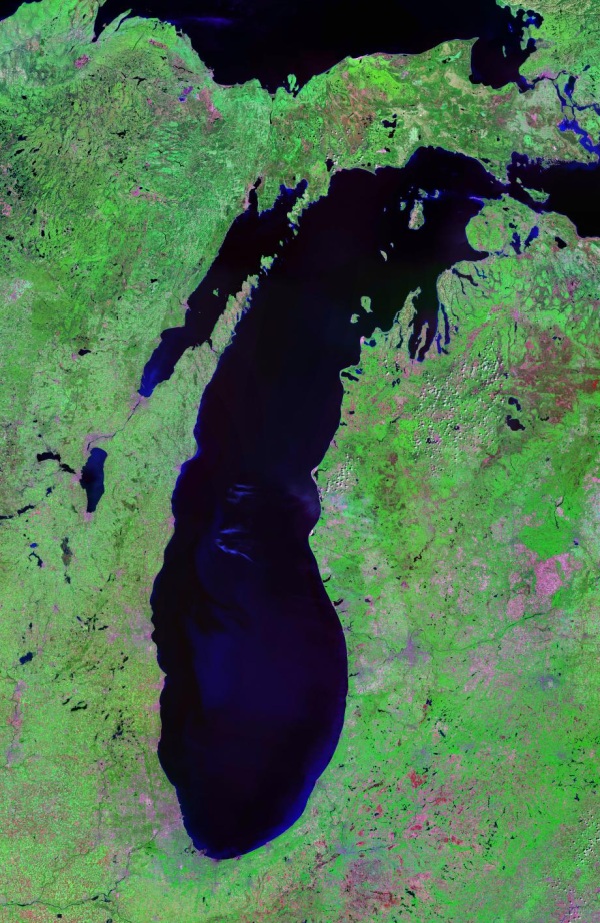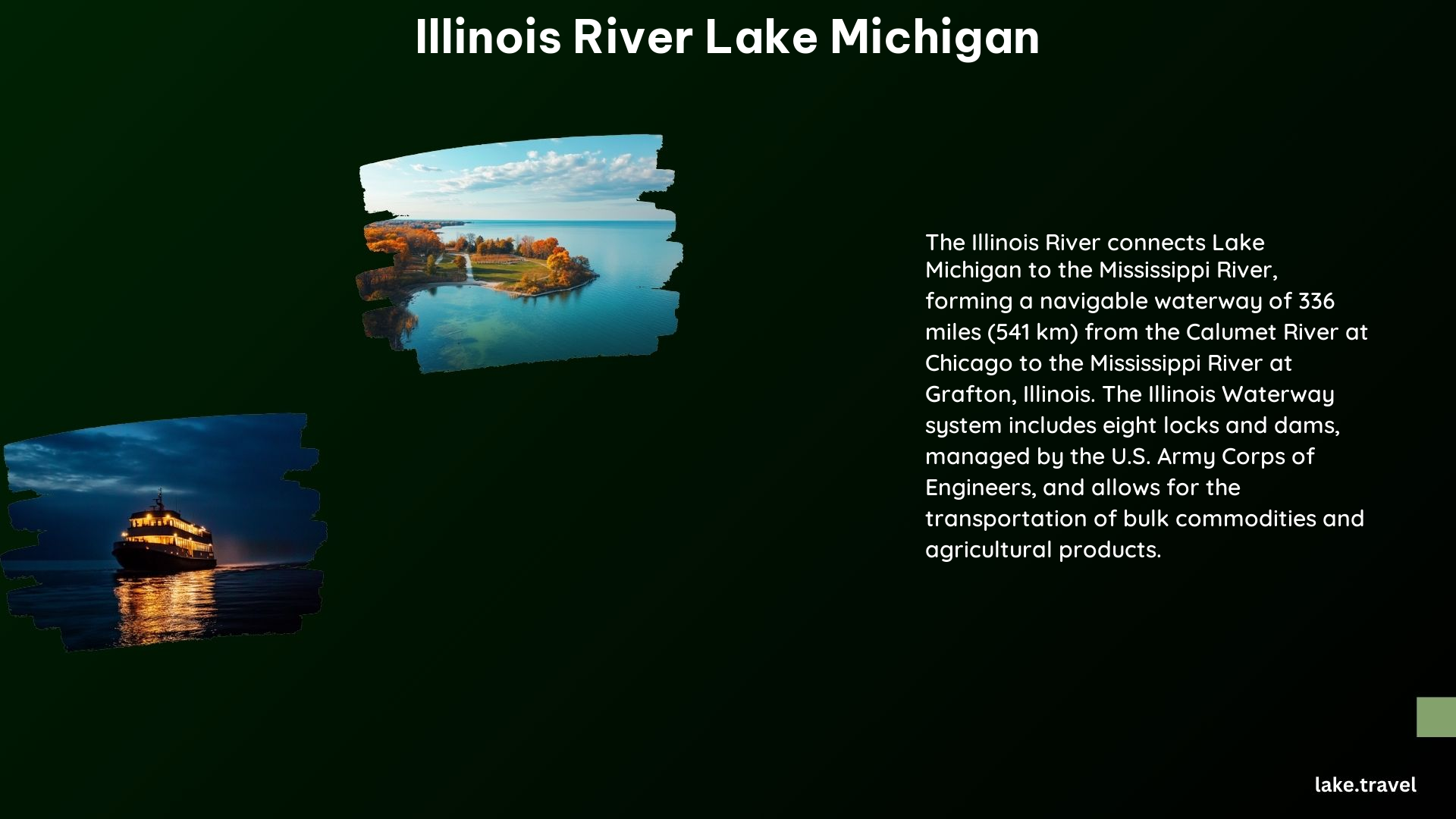The Illinois River is a crucial waterway that connects Lake Michigan to the Mississippi River, serving as a vital navigation route and impacting the water quality of the Great Lake. As a Lakes Touring Enthusiast, understanding the significance of this river and its relationship with Lake Michigan is essential for exploring and preserving these important natural resources.
The Significance of the Illinois River in Relation to Lake Michigan

The Illinois River plays a multifaceted role in the ecosystem and economy surrounding Lake Michigan. Here are some key aspects of this relationship:
Navigation Route
The Illinois River provides a navigable waterway that connects Lake Michigan to the Mississippi River, allowing for the movement of commercial and recreational traffic between the Great Lakes and the Gulf of Mexico. This connection has been recognized since the 17th century, when French explorers Joliet and Marquette identified its potential as a transportation route.
Water Quality Impact
The Illinois River can have a significant impact on the water quality of Lake Michigan. Pollutants and sediment carried by the river can flow into the lake, affecting its ecosystem and water clarity. Conversely, the water levels and quality of Lake Michigan can also influence the Illinois River.
Historical Importance
The Illinois River’s role as a navigation route has been solidified throughout history. The completion of the Illinois and Michigan Canal in 1848 further strengthened the river’s importance in connecting the Great Lakes to the Gulf of Mexico, facilitating trade and economic development.
Measures to Monitor and Protect the Illinois River and Lake Michigan

Recognizing the interdependence of the Illinois River and Lake Michigan, various efforts have been made to monitor and protect these valuable resources:
Water Quality Monitoring
Regular monitoring of water quality parameters, such as pH, temperature, and pollutant levels, helps track the health of both the Illinois River and Lake Michigan. This data is crucial for identifying and addressing any issues that may arise.
Conservation Efforts
Initiatives like the Illinois and Michigan Canal National Heritage Corridor and the Chicago Park District’s efforts to convert brownfield sites into nature parks promote ecological restoration and raise public awareness about the importance of these waterways.
Infrastructure Management
The U.S. Army Corps of Engineers plays a vital role in maintaining the Illinois Waterway, including the 9-foot-deep navigation channel, and managing the flow of water from Lake Michigan to balance the needs of both lake and river interests.
Quantifiable Details
To better understand the scale and significance of the Illinois River’s connection to Lake Michigan, here are some key quantifiable details:
| Metric | Value |
|---|---|
| Length of Illinois Waterway | 336 miles (541 km) |
| Number of Locks | 8 locks along the Illinois Waterway |
| Navigation Channel Depth | 9 feet (2.7 m) |
| Cost of Illinois and Michigan Canal Construction | $6.5 million (1848) |
Directory and Contact Information
For those interested in exploring or learning more about the Illinois River and its relationship with Lake Michigan, here are some useful contacts and resources:
- Gebhard Woods State Park Office: 815-942-0796
- U.S. Army Corps of Engineers – Illinois Waterway: Official site
